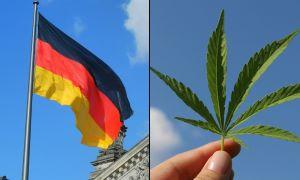The Justice Department is doling out more dollars to help Louisiana fight its drug war, and more.

Marijuana Policy
Last-Minute Florida Poll Has Legalization Initiative Losing.
A last-minute poll released Monday has the Amendment 3 marijuana legalization constitutional amendment narrowly losing, although the spread is within the margin of error. The Victory Insights poll, which was taken last week, had support for the measure at 56 percent, with 44 percent opposed.
Under Florida law, constitutional amendments on the ballot require not just a simple majority but 60 percent to win.
Most earlier polls have shown Amendment 3 winning, including a September Emerson College/The Hill poll that had support at 63.6 percent and an October University of North Florida poll that had support at 66 percent.
The initiative would legalize the possession of up to three ounces of pot by people 21 and over, as well as up to five grams of concentrates. There is no provision for home cultivation. Existing medical marijuana operations could sell to adults for personal use. It would be up to the legislature to allow anyone other than existing medical marijuana dispensaries to get licensed for adult sales.
By this time tomorrow, we should know how accurate those polls are.
Drug Policy
Justice Department Throws More Money at Louisiana to Prosecute Drug War. The US Attorney's Office for the Middle District of Louisiana announced Monday that the Department of Justice’s Office of Justice Programs, Bureau of Justice Assistance, has awarded $3,364,666 to the Louisiana Commission on Law Enforcement ("LCLE") to help state law enforcement agencies "fight the drug epidemic and violent crime throughout the state of Louisiana."
The money will go to "providing state and local units of government funding to enforce drug control laws and to improve the functioning of the criminal justice system, with an emphasis on violent crime and serious offenders." The program is designed to "improve drug control via enforcement of the laws against violent and non-violent crime; addressing recidivism by strengthening the areas of the criminal justice system that focus on prevention of crime and drug abuse intervention; and responding to the need for specialized law enforcement and prosecution training."
The Louisiana Law Enforcement Commission will determine exactly where the money goes, as well as "promoting law enforcement, prosecution, and adjudication efforts necessary to provide for a safe and drug-free society."
This funding has been an annual thing in recent years. Last year, the program awarded $4,202,037 collectively to the Louisiana Commission on Law Enforcement, East Baton Rouge Sheriff’s Office, Baton Rouge Police Department, Livingston Parish Sheriff’s Office, and Ascension Parish Sheriff’s Office.
There is no word on any cost-benefit analysis of this endless funding for drug prohibition.
International
Germany Announces Two Further Planned Adult-Use Marijuana Trials, but Legislation Is Not Yet in Place to Launch Them. The cities of Hanover and Frankfurt have published "letters of intent" signaling they plan to launch pilot projects for legal marijuana sales that will involve thousands of customers. But with enabling legislation for "Pillar 2" of legalization—the emergence of legal marijuana markets—still on hold and with no firm date for its passage, those statements of intent remain just that.
In Frankfurt, the city and the Frankfurt University of Applied Sciences want to launch a five-year pilot program with four pot shops open to citizens. Eligible residents will have to register so the city health department and the university can track the impact on public health. Authorities say the primary aim of the project is to divert the city's estimated 50,000 pot smokers from the black market.
Participants will have to be 18 or older and in good health and will have to complete regular medical surveys and health checks. Participants will be limited to 50 grams of marijuana a month, for which they will pay about $10 per gram.
The city of Hanover has plans for a similar study with 4,000 participants. It will also be supported by the Frankfurt University of Applied Sciences.
The city of Wiesbaden has already announced plans for a pilot study of legal markets.
Pillar 2 was the German government's response to criticism from the European Commission of its initial plans to launch a legal, regulated marijuana market. Instead of moving ahead full bore, the Germans legalized marijuana possession in Pillar 1 and will go with the pilot programs instead. That is, once they either pass enabling legislation or draft regulations for the programs administratively.
This work by StoptheDrugWar.org is licensed under Creative Commons Attribution-ShareAlike 4.0 International
Add new comment